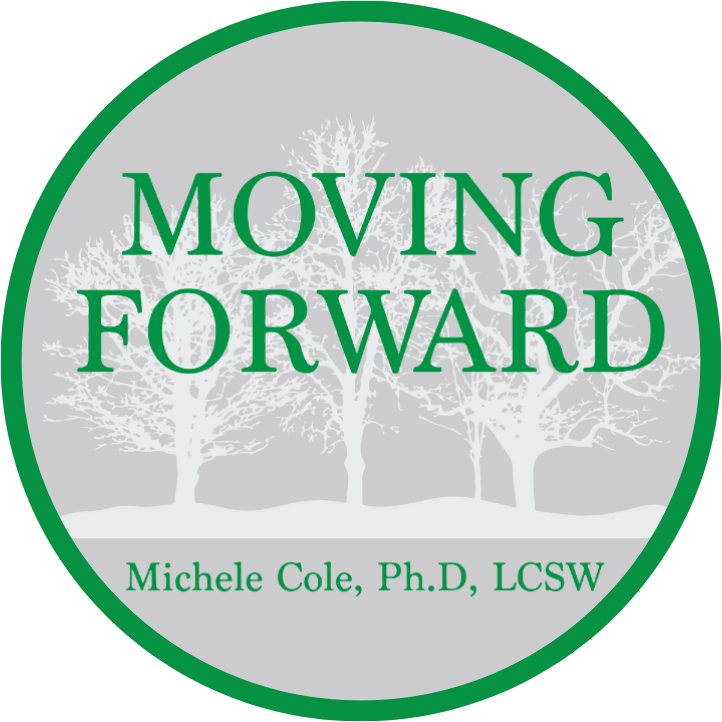
Obsessive-compulsive disorder, or OCD, is a chronic and often debilitating mental health condition. It’s marked by a pattern of unwanted, intrusive thoughts known as obsessions. These thoughts can trigger repetitive behaviors or mental rituals, known as compulsions. People with OCD feel trapped in a cycle that causes significant anxiety and distress.
Why Treatments for OCD Are Critical
OCD doesn’t typically go away on its own. Without treatment, the compulsions often become more intense and time-consuming. Daily life can be severely impacted, from school and work to relationships and self-care. Treatments for OCD are necessary to interrupt this cycle and restore normal function.
Overview of Modern Treatments for OCD
Today’s approaches to OCD treatment include evidence-based psychotherapy, medications, and even neuromodulation. These treatments for OCD vary in how they target symptoms and in how long they take to work. Each individual may respond differently to different methods. Finding the most effective plan requires customization and expert guidance.
Common Treatments for OCD and How They Help
Obsessive-compulsive disorder requires structured, evidence-based care to manage symptoms and improve daily functioning. Below are the most commonly used treatments for OCD, each offering a unique approach to reducing obsessions and compulsions:
Cognitive Behavioral Therapy (CBT)
CBT is a foundational treatment for OCD that focuses on changing unhelpful thought patterns. It helps individuals understand the connection between thoughts, emotions, and behaviors. By identifying cognitive distortions, patients learn to respond more rationally to obsessive fears. This therapy can significantly reduce anxiety and compulsive urges over time.
Exposure and Response Prevention (ERP)
ERP is a specialized form of CBT designed specifically for OCD. It involves gradually confronting feared situations while resisting the urge to perform compulsions. Over time, this reduces the anxiety linked to obsessive thoughts. ERP is widely regarded as the most effective behavioral treatment for OCD.
Selective Serotonin Reuptake Inhibitors (SSRIs)
SSRIs are a typical class of antidepressants used to treat OCD by increasing serotonin levels in the brain. Medications like fluoxetine, sertraline, and fluvoxamine are typically prescribed. These drugs help reduce the intensity of obsessions and compulsions. It often takes several weeks before noticeable improvements occur.
Serotonin-Norepinephrine Reuptake Inhibitors (SNRIs)
SNRIs like venlafaxine are occasionally used when SSRIs are not effective. They work by boosting both serotonin and norepinephrine in the brain. Though less commonly prescribed for OCD, some patients respond well to this class of medication. These drugs may be part of a broader treatment plan involving therapy.
Clomipramine As a Treatment For OCD
Clomipramine is one of the oldest medications approved for OCD treatment. As a tricyclic antidepressant, it has proven effective for individuals who do not respond to SSRIs. It tends to have more side effects, such as drowsiness and dry mouth. However, it remains a viable option in resistant cases.
Treating OCD With Antipsychotic Augmentation
For treatment-resistant OCD, low-dose antipsychotics may be added to an SSRI. Medications like risperidone or aripiprazole can help reduce severe symptoms. This approach is known as augmentation and is typically reserved for individuals with limited response to traditional medications. Regular monitoring is essential due to potential side effects.
Deep Brain Stimulation (DBS) As A Treatment For OCD
DBS is a surgical treatment for individuals with severe, chronic OCD that hasn’t improved with conventional therapies. It involves implanting electrodes in specific brain areas to regulate abnormal activity. DBS is FDA-approved under particular guidelines and used only in extreme cases. It offers hope for individuals with highly resistant symptoms.
Repetitive Transcranial Magnetic Stimulation (rTMS)
rTMS is a non-invasive treatment that uses magnetic pulses to stimulate targeted brain regions. It’s FDA-approved for OCD and generally used when first-line treatments fail. This therapy is conducted over multiple sessions and has minimal side effects. rTMS has shown promising results, especially in reducing compulsive behaviors.
Treating OCD With Meditation Techniques
Mindfulness helps individuals observe their thoughts without acting on them. This approach is beneficial for managing mental compulsions and intrusive thoughts. Meditation can reduce overall stress and enhance emotional control. When combined with therapy, mindfulness techniques can improve long-term outcomes.
Lifestyle Modifications To Help Treatments For OCD
Healthy lifestyle changes can support recovery by reducing stress and improving mood. Regular sleep, exercise, and a balanced diet can enhance treatment results. Avoiding caffeine and alcohol may also minimize anxiety triggers. These habits aren’t a standalone cure but can significantly support other treatments for OCD.
Group Therapy As a Treatment For OCD
Group therapy offers a space for individuals with OCD to connect and share experiences. It helps reduce isolation and provides additional coping tools from peers. Facilitated by a therapist, these sessions can complement individual therapy. Peer support builds confidence and fosters a sense of community.
Intensive Outpatient or Inpatient OCD Treatment Programs
Intensive programs offer structured, daily care for individuals with severe OCD. These programs may include multiple therapy sessions, medication management, and group work. They are designed for those who need more support than traditional outpatient care. Many people experience rapid progress in these immersive settings.
Personalized Treatments for OCD
Each person’s OCD presents uniquely, so treatment should be equally individualized. Some may respond quickly to therapy alone, while others need a multi-faceted approach. Age, type of obsessions, co-occurring conditions, and personal preference all play roles. Personalized care is central to long-term success.
How the Severity of Symptoms Impact Treatments for OCD
The severity of OCD symptoms plays a crucial role in determining the most effective treatment approach. For individuals with mild to moderate symptoms, therapy alone, particularly cognitive behavioral therapy (CBT) with exposure and response prevention (ERP), may be sufficient to manage intrusive thoughts and compulsions. However, those experiencing more severe or debilitating symptoms often require a combination of treatments, including both medication and therapy, to achieve meaningful progress.
Comparing Talk Therapy and Medication As Treatments for OCD
Talk therapy, especially ERP, helps people face and manage their fears. The medication works behind the scenes to balance chemicals in the brain. Treatments for OCD are most effective when these two are combined. This dual approach helps people change both thoughts and brain function simultaneously.
Digital Tools and Online Treatments for OCD
Online CBT and ERP platforms allow access to treatment regardless of location. Apps provide symptom tracking, thought records, and reminders to resist compulsions. Teletherapy sessions also enable people to receive care from home. These digital treatments for OCD are expanding in reach and affordability.
Treating OCD in Children and Adolescents
Treating OCD in children and teens often requires family involvement. Therapy may include play-based techniques or simplified ERP protocols. Parents are taught how to reinforce therapy goals and avoid enabling compulsions. Medications are used cautiously but sometimes necessary for more serious cases.
How Parents Can Support Treatments for OCD
Supportive parenting plays a massive role in OCD treatment. Parents should avoid giving constant reassurance or helping with rituals. Instead, they should allow the child to practice coping strategies and reinforce therapist instructions. Consistency at home supports the effectiveness of professional treatment.
The Importance of Treatments for OCD
The earlier OCD is recognized and treated, the better the outcomes. Early treatment can prevent the disorder from interfering with education, work, or relationships. Children who receive help early often experience fewer long-term complications. It’s vital to act quickly if symptoms are noticed.
When Treatments for OCD Don’t Work As Expected
Some individuals don’t improve despite trying standard options. This condition, known as treatment-resistant OCD, requires specialized care. Options may include intensive outpatient programs, inpatient care, or advanced techniques like DBS. Persistence and patience remain essential even in complex cases.
Myths About Treatment for OCD
Despite growing awareness, many myths still surround how OCD is treated. These misconceptions can prevent individuals from seeking the help they truly need.
Misunderstandings About Medication
A common myth is that OCD medication turns people into emotionless versions of themselves. In reality, selective serotonin reuptake inhibitors (SSRIs) are carefully prescribed to reduce symptoms, not numb emotion. When managed by a qualified provider, side effects are often minimal and temporary. Medication is often essential for individuals whose symptoms are too intense for therapy alone.
Common Fears Around Therapy
Many believe that therapy for OCD is confrontational or traumatic. While exposure and response prevention (ERP) involves facing fears, it is done in a controlled and supportive way. Therapists tailor each session to meet the person’s readiness and comfort level. Avoiding therapy due to fear often prolongs suffering and delays recovery.
Cost and Access to Treatments for OCD
Unfortunately, not all treatments for OCD are covered by insurance. Medications, therapy, and brain stimulation procedures can be expensive. Some providers offer sliding-scale fees or low-cost community programs. Expanding access remains a key issue for policymakers and advocates alike.
Research on New Treatments for OCD
Research is ongoing into newer pharmacological and psychedelic treatments for OCD. Compounds like psilocybin and ketamine are being studied for their rapid effect on obsessive thoughts. Genetic and neurobiological research is also advancing. These innovations could lead to more targeted, faster-acting therapies in the future.
Finding the Best Treatment for OCD
The best treatments for OCD are those that meet the individual’s needs. For many, ERP offers the most durable symptom relief. When paired with medication, it can be even more powerful. With proper care, most individuals with OCD can lead full, meaningful lives. For more information about OCD treatments, please visit our Moving Forward PLC blog.
